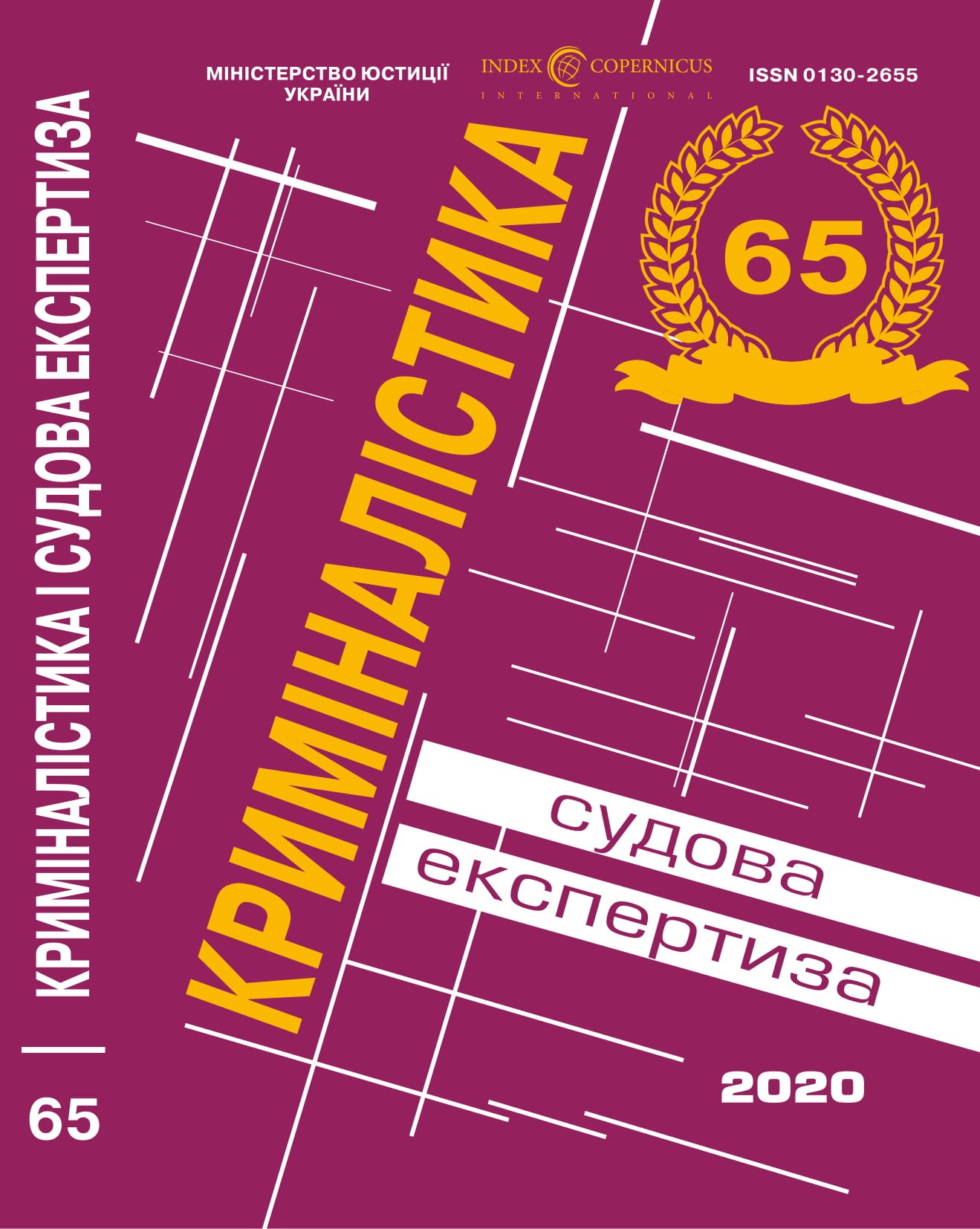
DOI: https://doi.org/10.33994/kndise.2020.65.05
M. Shcherbakovskyi
Reviewing the conclusions of forensic experts is regulated by the procedure developed by the Ministry of Justice of Ukraine. The immediate purpose of the review is to establish the conformity of the study to the approved expert methods, to draw up an expert opinion on the procedural and departmental requirements. The ultimate goal of reviewing is to determine whether the conclusion form complies with the requirements of the law, the scientific validity of the expert opinion as a source of evidence, and the competence of a forensic expert. External reviewing is carried out in accordance with the plans of the Ministry of Justice for experts preparing to receive or confirm their qualifications. Internal peer review is carried out in expert institutions as ongoing quality control of examinations. Gross violations in expert studies have been identified, and organizational and procedural consequences are being drawn, which include sending a court notification about the inaccuracy of the examination. The use of reviews of expert conclusions in court proceedings as a source of evidence is unacceptable, since this document is not provided for by the procedural law, there are no guarantees of the independence and disinterest of the reviewer, reviews do not contain data on the actual circumstances of the dispute or offense. The purpose of providing reviews that are not compiled by the staff of expert institutions is to discredit the authority and professional reputation of forensic experts, leveling their conclusions. At the same time, there is an objective desire of the court to involve knowledgeable persons in the assessment of expert research. This is due to the fact that the parties and the court do not have special knowledge, which make it possible to assess the validity and reliability of the expert’s opinion. The procedural form for establishing these circumstances is to use the help of knowledgeable persons who may be involved as specialists to provide clarifications on issues within their competence. The specialist research the scientific and methodological side of expert examination. A written explanation of a specialist is a procedural document that is prescribed by law, but it does not have the status of a source of evidence. If the specialist provides an explanation that contains a negative response to the expert’s opinion, the judge must invite the expert and expert for interrogation to provide explanations. After hearing a specialist and expert, the court may come to the conclusion that the forensic examination was carried out correctly or, conversely, there are doubts about the reliability of the study and the grounds for appointing a new or repeated examination.
Key words: forensic conclusion, review, written explanation, specialist, interrogation, evidence.










